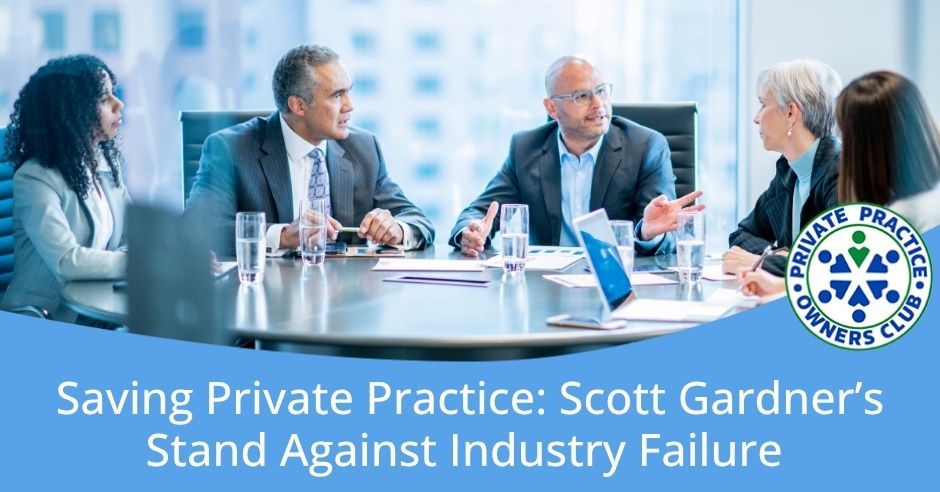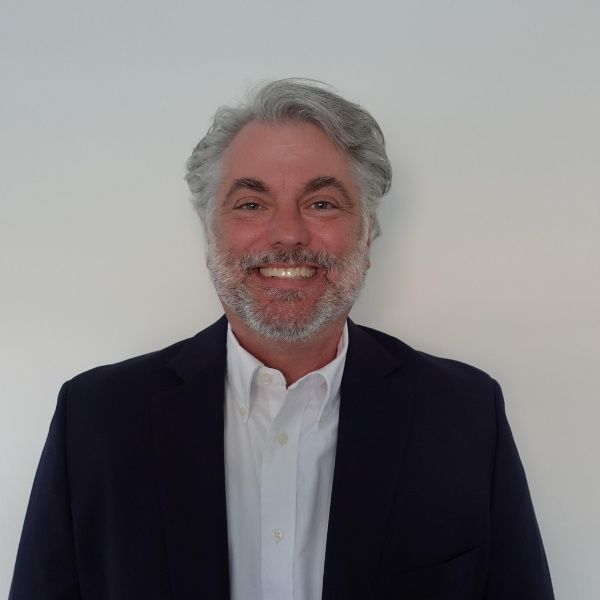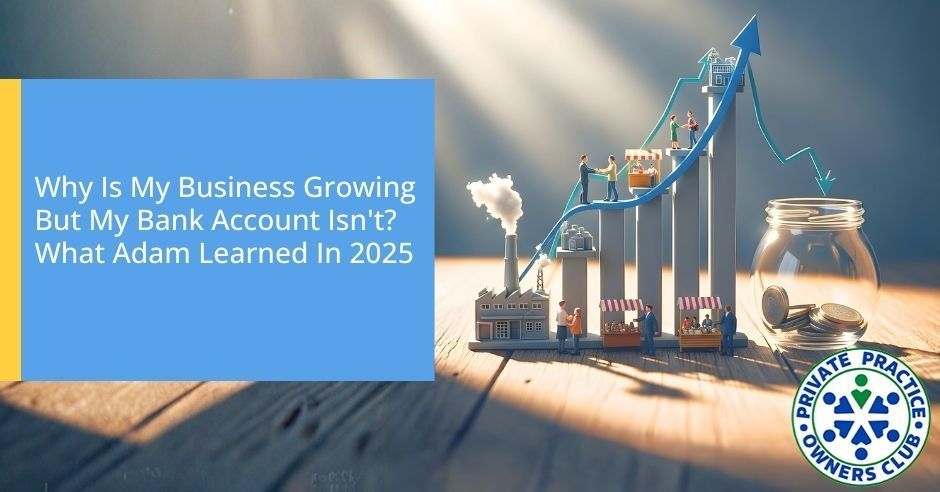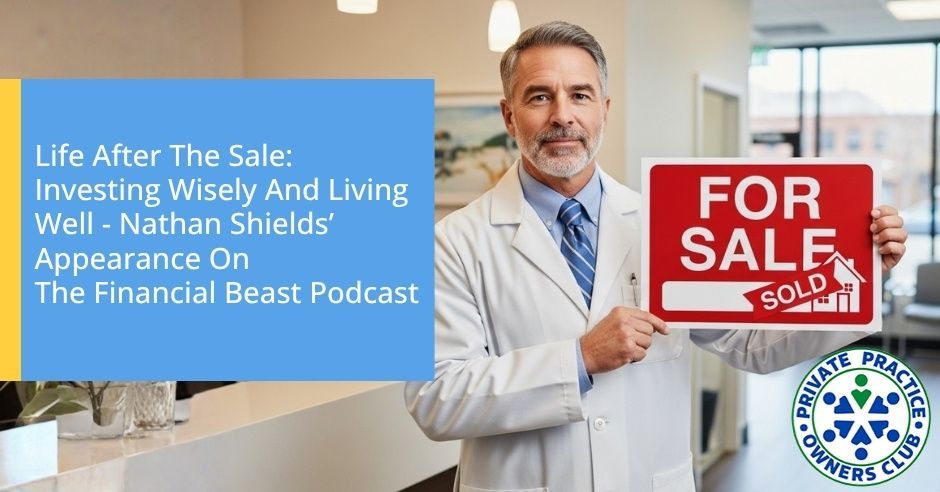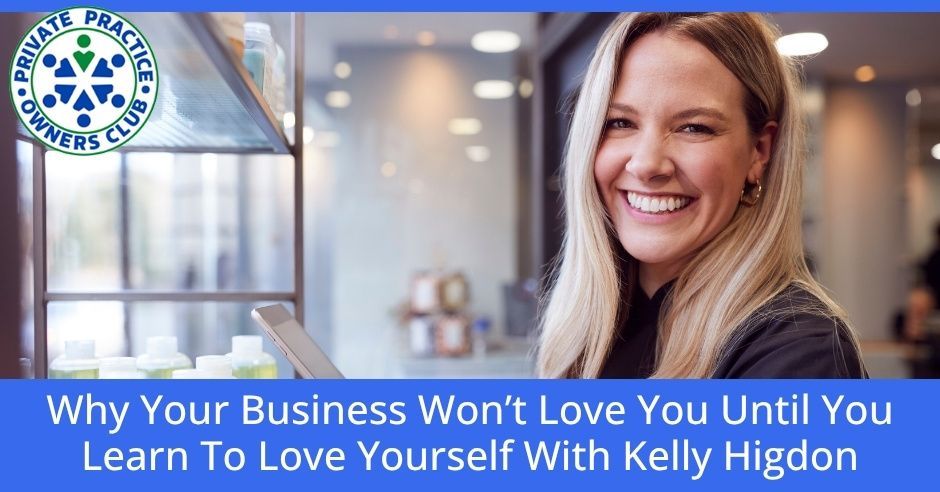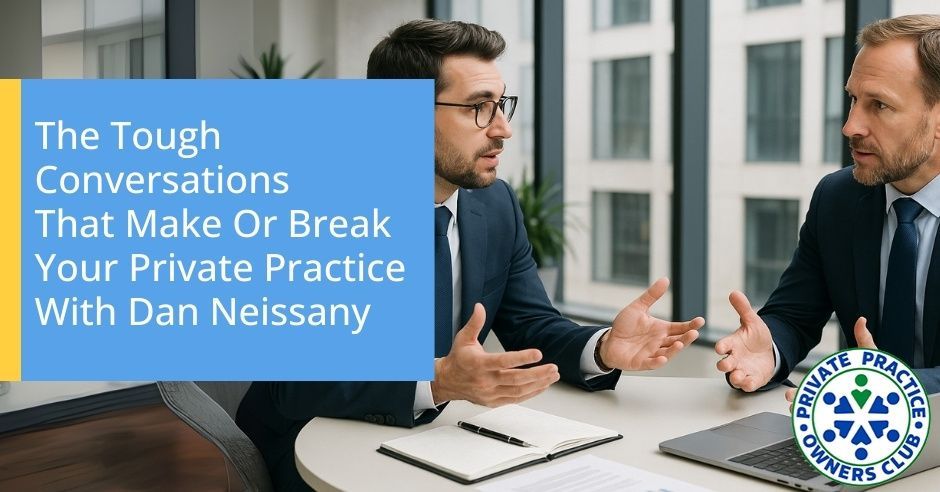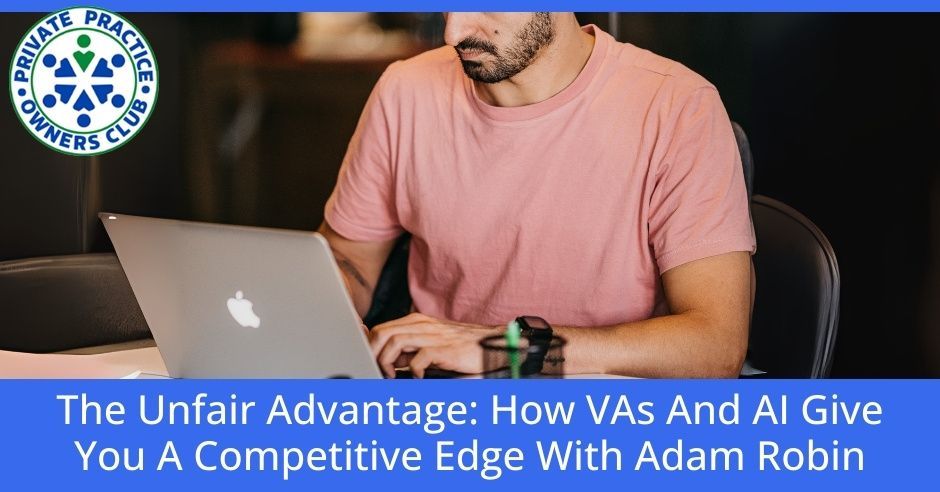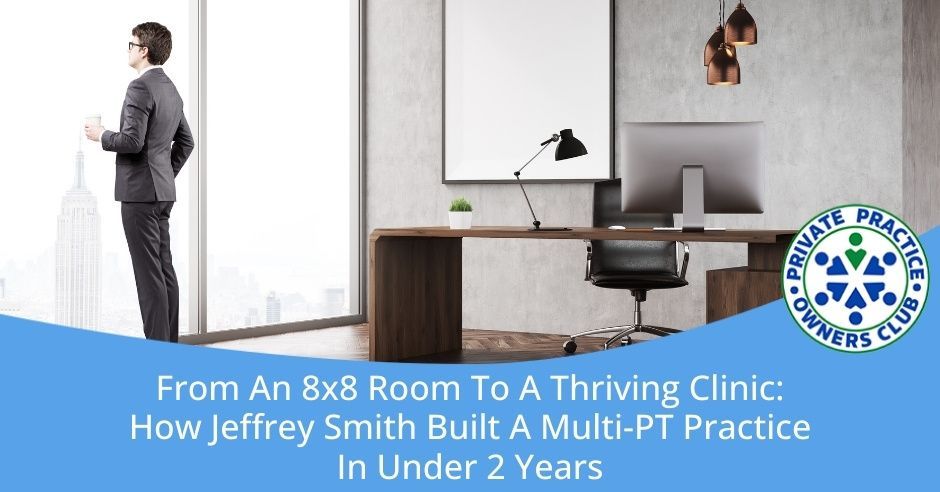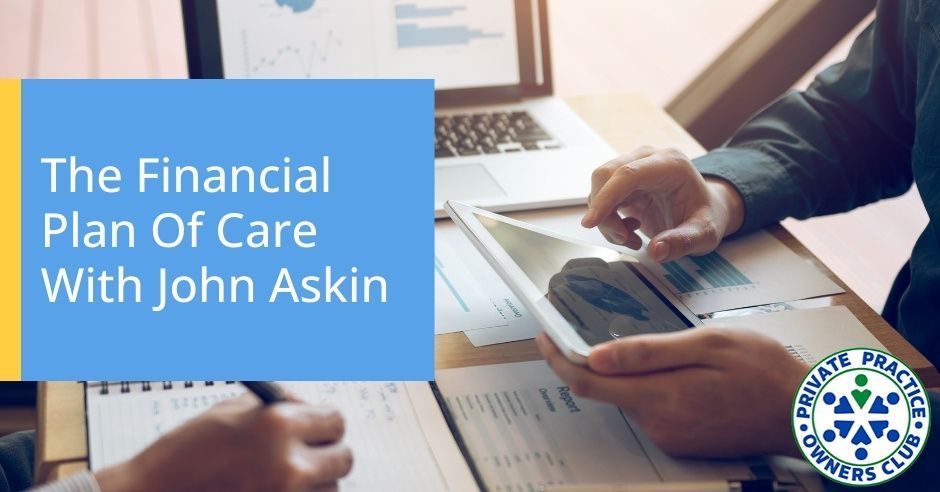In this eye-opening episode, Nathan Shields sits down with a PPOClub Conference keynote speaker
Scott Gardner, founder of the
United Physical Therapy
Association (UPTA), for a candid conversation about his noble stand against industry failure. He talks about his mission to address the growing challenges facing private practice owners and why many feel abandoned by the APTA. Scott also shares what pushed him to launch a new association built by and for private practice PTs, and what it will take to turn the tide in our industry.
They dive into:
- Why so many PT owners are losing trust in traditional advocacy groups
- The origin story of the United Physical Therapy Association
- Key policy issues threatening private practices today
- What real representation should look like – and how to get it
- How private practice owners can unify and push for change
If you're tired of feeling like you are on your own, this is a must-listen episode.
🎙️ Join the movement. Get connected. Take action.
And don’t miss the upcoming Private Practice Owners Club Conference where conversations like this go even deeper. Register now at
ppoclubevents.com/homepage
---
Listen to the Podcast here
Saving Private Practice: Scott Gardner’s Stand Against Industry Failure
I’ve got someone that I’m excited to bring to the show, Scott Gardner. He is a physical therapist and the owner of Gardner Physical Therapy, with four clinics in Maryland, and also the founder of the United Physical Therapy Association, which started in 2024. The reasons I’m excited to have him on are two. One, he is going to be one of our keynote speakers at the conference in October for the Private Practice Owners Club Conference. That is October 2, 3, and 4 in Destin, Florida. Go to the website PPOClubEvents.com to register. If you do it soon enough, probably be part of the early bird discount, so get to that ASAP. He is going to be one of the speakers there. I’m excited to hear what he has to say.
The second thing is, he’s forcing movement in the physical therapy industry that also carries over because I’m assuming that there are similar issues going on in occupational therapy and speech therapy that affect pediatrics. Some of these other owners that we work with outside of physical therapy are experiencing a lot of the same issues that we’re experiencing in physical therapy.
Scott decided to found the United Physical Therapy Association to push things along a little bit more and to have more advocacy. I’ll let him share his story, but a little peek behind the curtain, he wasn’t happy with what the American Physical Therapy Association was doing. I’ll let him speak to that a little bit more, but those are the reasons why I wanted to bring him on. Scott, first of all, thanks for joining me. I’m excited to talk to you.
Thanks for having me. I look forward to seeing everyone in Destin in October. That’s a beautiful town. I’m looking forward to seeing everyone and speaking there.
Scott Gardner And The United Physical Therapy Association
I’m excited for the conference and the value that you, along with the other speakers and sponsors, will provide, and as you said, it’s a beautiful beach town. If you haven’t been to Destin, it’s gorgeous. Let’s talk a little bit, Scott. You started your clinics in 2011. You grew them to four clinics in Maryland. You’re a successful physical therapy owner, and you’re making an impact in the community. What gave you the itch to start working at more of the legislative or more of an industry level? Tell us about the beginning of that.
I’m 53, and I focused mostly on my practice and raising my family with my wife. A couple of years ago, my daughter decided she wanted to do physical therapy. She’s finishing her first year of PT school, and she’ll graduate in 2027. Having a business, we all get squeezed. We start noticing that Medicare tells us 13% in five years and 31% in the last twenty years. The cuts keep coming. We’re attached to the Medicare physician’s fee schedule. It’s not our schedule, but this physician's fee schedule.
I started diving into the health system and how it’s structured. When I started to get into it, I started to realize there are a lot of issues going on in healthcare. What can I do as a physical therapist to help the cause and help move us forward? We all have to be involved. We can’t all just sit on social media and complain that we’re not getting paid enough. That doesn’t move the needle. We need to do something. We need to show up, speak up, and be a part of the solution. I decided to get involved in the APTA.
I got into the Maryland chapter. Right off the bat, I was Vice President and getting involved more as the chairperson, and things moved very slowly. It’s like a governmental-type situation. It’s bureaucratic and it takes time, so I decided to run for the board of directors there. I’m a newbie. Don’t get me wrong. I was nominated by many people, but I didn’t get slated. When I didn’t get slated, I inquired why, and a lot of my colleagues reached out to the nominee committee and asked why I wasn’t slated. I think they were overwhelmed by the response of them not slating me.
It boils down to, I don’t have a long resume. I’ve spent the last 25 years in my community. The last fourteen of it, establishing my practice and vetting myself in the neighborhood, treating patients, coaching Little League, and getting involved with my kids' activities after work. I don’t have time to do research, write papers, and make my resume extremely long with all the accolades, but I've vetted myself in the neighborhood, and that wasn’t good enough.
I took that to heart, and I said, “This is disheartening to say the least.” The more I dove into the actual association, I realized that at that time, more than 50% of the board was based in academia, and more than 50% of the House of Delegates, which is the Congress of the Physical Therapy Association, which determines what they will focus on in the year ahead, was academia based. We’re talking about 1% of our practice setting or physical therapist “practice,” 1% is in academia.
If there are 250,000 physical therapists in the country, only 2,500 of them are in academia, but those 2,500 hold the keys to what they’re going to focus on. If you watch what they were focusing on, it was a lot of social constructs, population health, and health equity. I get it. It’s important, but we’re out here. All the physical therapists working in private practice or even in outpatient settings outside of a health system are suffering, cut after cut. We can’t find physical therapists to work in our setting because hospitals can pay more.
Why can hospitals pay more in the outpatient setting? There’s a site-neutral payment that doesn’t exist. If I have a Blue Cross Blue Shield, and they come to me, and I get $80 a session, they can go to the hospital outpatient physical therapy practice, get the same care, and it gets $300. You can see these differentials in payment if you go look at the machine-readable files on your insurance company. They haven't posted them yet to find a big form, but you can find a raise. You’ll see that they’re 2 to 3 times what I get.
That allows the clinic to favor the therapist. You only get to see 7 or 8 people a day, and that’s fine. They can pay them $10,000 to 15,000 more. We can’t capture these physical therapists out of school because the debt is so high when they come out that they’re looking for the highest-paying job. We’re at a constant disadvantage, and unless we have people in leadership who truly understand this and live it every day, it’s never going to change. There’s never going to be advocacy efforts that go toward it because if I work in a setting where that doesn’t affect my pay, I’ll try, but at the end of the day, I’m like, “I gave it to good old college. I’ll try. Maybe next year, we’ll get that.” We don’t have until next year.
We have to come up with hybrid models of treatment. We need to be able to have a cash-based setting as well as an insurance setting and mix the two together to be solvent. We all need to come together, and I can go on these TED Talks forever, but we should look at MSOs and IPAs across the country. We need to not look at each other like the guy or gal across the street who has her own practice. It’s not my competitor. They’re my colleagues. I need to join them to leverage our size.
There are enough patients to go around for all of them. There are patients galore in physical therapy, but if we can start downing together, we can create an economy of scale for insurance reasons, for leverage when you’re trying to negotiate contracts, and for compliance purposes. All those things, and it will reduce our overall cost and increase our bottom line. I saw that there was a disconnect. A lot of people go after the DPT. They put the cart before the horse. They decided it was the best pathway before they got this agreement from any insurance company. They were paying many more, so now we have people coming out of school with seven years of debt. They are in $250,000 debt, and they’re making $75,000 to $80,000 right off the bat.
To the kids who come out of school, they’re looking for the highest-paying job, for most of them. They’re not looking at the outpatient setting because we are the lowest-paying setting, but it’s a very rewarding setting. I love outpatients. I saw this disconnect. I told them when they didn’t slate me, “You can make your own decisions. That’s fine. I’m leaving my membership. I’m going to start my own association. We’re going to focus on things that are advocacy-based.”
That’s what I’ve done. We do have a big announcement that we’re coming up with. If it goes through and happens, it’ll be a big change for our profession. It’ll be good. We have smaller things in the work that we’re trying to work on. We’re trying to take a slightly different approach to advocacy if we can, at times, because moving it through the legislation takes a long time. Bills can be sponsored by every congressman, but it doesn’t mean they’ll ever get out of committee. I’ve been to Capitol Hill twice. I’ve met with senators and representatives and thanked them for their time and their consideration for what we need.
At the end of the day, we’re still in the Medicare position fee schedule. We need to have positions to help push that, but the positions are all getting purchased by health systems, so they don’t have as much leverage as they used to. End game for our profession, and there are many more intelligent people than me. We need to get a different payment system through Medicare that focuses on the quality and the outcomes that we provide, where value is what we do, and doesn’t tie us to a physician’s fee schedule that’s determined by a RAC committee that we have no say in.
There are so many challenges stacked against PTs. Until we all band together, our situation will never change.
There are 30 people on the RAC. When they want to take and give more money to primary care, where do you think they’re pulling it from? Not from themselves. They’re looking for employers’ services, which we are considering, so take it from speech and OT. We have a 2.83% cut in 2024, but it was more than that because we took out neuromuscular at 4% and tariff by 5%.
These are issues that PTs, PTAs, and OTs need to understand. You need to understand why your boss can’t pay you anymore. You need to understand why they’re asking you to see more patients. They’re the reason for all this. I didn’t get it until about a few years ago when I started diving in. I love diving into this health policy stuff. I can go down a rabbit hole and learn. There are so many things that are stacked against us. Until all 200,000 of us band together, they probably won’t change.
I started UPTA. Our membership will start to ramp back up once we publish what we’re doing in a few weeks and people see that we’re trying something different. I’m looking forward to it. I am enjoying the ride. I’ve met a lot of great people once I started it. A lot of people reach out to me on social media and Messenger and say, “Thanks for what you’re doing. I’ve been watching you from afar. I’m keeping an eye on what you’re doing.” I’m just a rural physical therapist who wants to see this great profession be viable 25 years from now, and treat others, as well as myself and my family, and continue to provide care for the patients in our community.
You do have a Facebook page. Is that where most people can find you if they want to follow what you’re doing?
They can go to the good Facebook page. We send blast emails to our members periodically. We started a LinkedIn page because a lot of physical therapists lurk them. LinkedIn seems to be an area where a lot of PTs are engaged. We started that page, and we’ll start posting on that. I’m a social media manager, but I’m busy practicing all the time, too. It’s a balancing act between how much time I can commit to posting.
I will probably get a TikTok page and some other IG pages. My daughter is good at that. She’s an influencer on those two platforms. When she has time between school, I’ll have her set up our Instagram page and our TikTok page so we can reach the 24-year-old physical therapist. Facebook is reaching more the 50-year-olds. We’re trying to expand our reach. I only have so many hours in the day to work on things. As we grow, we can network more and more, and people get to know about us. I appreciate you having me in October.
It’s great to have you on. As I said, I’m excited to hear what more you have to say at the conference. What I recognize in you is that I would love to see the APTA do more for the private practice owner. I’m sure OTs and speech may feel the same way. I, too, believe that academia runs whatever the APTA does, and they have little to no clue as to what’s happening, boots on the ground. Thus, we’ve lost 30% of our Medicare payments over the last two decades.
Helene Fearon was a champion for us. I don’t know how involved she is, but she’s the lone voice out of the many decades. She’s going to get overrun by the American Medical Association. Kudos to her because she was like that, trying to make changes. She was a private practice owner, but she was just one person. If I look at myself, I’m one of those people who recognize the APTAs not doing what I need. We need to make changes as an industry. Where I’m looking to go and where Adam is looking to go is that we’re trying to affect change. I think I can speak for Will Humphrey as well, a past partner, but an advocate for the profession. We’re trying to transform into better leaders who can then have the time to advocate for the profession like you are.
We always say nothing is going to happen too much until the therapist and the owners, as a collective, recognize what they’re doing wrong, business-wise. Not just demanding changes in insurance and reimbursement rates, but also canceling contracts, getting out of them, and finding other ways to generate revenue. The kudos that goes to you is that you’re at the head of the dragon. We’re trying to slay the body, I feel like. We’re trying to nick up the arms and the legs and that stuff. I see you going straight to the head of the dragon to address the issue.
Pushing For Better Private Practices Through UPTA
I’m sure that’s harder. I don’t want to do that. That’s why I love having you. I don’t want to be in the legislative stuff. I don’t want to read about health policy. I don’t want to do that stuff. I want to focus on making the owners the champions, so they can maybe do what you’re doing with the time that they create by having a practice that is their own. All that being said, I want to thank you for your efforts on that. As a question, though. What are the hurdles that you’re finding as you’re doing this on your own? Are there some surprising limitations? Are there things that you weren’t expecting, or are you seeing a perspective like the APTA isn’t doing X, Y, and Z?
To your point, I ended up realizing that even if I got on the board and got elected, I don’t think I could have been much of a change agent inside because my voice would have been dented by all the other board members who are in academia, who still would have had a majority of what I would say. I wouldn’t have a chance to do as much. Look at it this way. If you had a physical therapy practice in my town, and you were the only game in town. You have every patient coming to you who needs physical therapy. You have no reason to change what you’re doing.
The status quo is fine because nobody is challenging you. When you have an upstart association or upstart physical therapy practice moving right next door, challenging the way you do things and saying, “I’m going to do things differently than what Nathan does,” lights a little fire under you to say, “Maybe we should reevaluate how we’re doing things. I’m starting to lose people who always came to me. Maybe I wasn’t doing a good enough job. I got complacent.” By starting a separate association, I don’t look at it as more of a confrontational approach. Even though it might be that way. It’s more designed to say, “You’re not doing things a certain way. We’re going to try a different way.”
When we have success, that’s going to put a lot of fire under you. That association is much larger than I am. It’s 100 years old at a huge building in Alexandria, Virginia, and has millions and millions of dollars in reserve that are available to use for whatever they determine needs to be used for. Our job is to push them along and make them rethink their priorities and how they do things. That’s my goal. At some point, I’d like to maybe work together with them and figure out a way we can tackle things together and get more people energized to join, whether they join me or join them, to be participating in the advocacy efforts, because that’s key.
It’s going to be a hard fight, but if we can fix some of these payer issues, as you said, by individuals opting out of insurances, going out of network, and finding hybrid models that work in the outpatient setting, and getting true direct access where I don’t have to have a doctor sign my plan of care, and things like that allow us to be autonomous practitioners, then we can make some gains. That’s my goal. If I were inside, I don’t think I’d be making a difference. I know I’m making a difference. I truly do.
I have people that I know are still involved. They don’t mention me, but they talk about other people and other organizations doing things. That’s all I’m trying to do. I’m just a physical therapist, but you’ll get to a point in your life where you’ll hit an age and you don’t care, but you don’t care. I’ll speak up, and if you don’t like what I say, that’s fine. That’s my opinion. I’m going to say it. Most of us, when we encounter our older individual patients, find that they say whatever is on their mind. How can they say that? I’m there, especially when it relates to my profession.
We’re doing things wrong. We probably shouldn’t be focusing on social constructs now because there are a lot of issues. If we fix the other issues, we can focus on social constructs all day. We can’t focus on health equity and population health if there are no physical therapists to treat them. If they all leave the profession because they don’t like it, and they’re not getting paid enough, why are we focusing on this? Let’s try to fix the payer issue. If you make efforts to change that, then everything else falls into place because PTs have more time.
If they make more money, they’ll have more time to participate in community-based activities to do these things. Right now, everybody is on a hamster wheel. We’re on a hamster wheel because we have EMRs that are mandated by the government. We click, click, and click. We spend half our time clicking boxes and not being caring to our patients. I think we need more people to get involved. I’m at the age now where it’s perfect for me to be involved. Kids are in their twenties. It’s my job to make this profession better for the next generation. PTs are in their 20s and 30s, and they’re raising families. They don’t have time. That’s fine. Get involved when you’re 50, and we’ll leave you a profession that’s accessible, and you help keep it floating along.
The generation that came before us did a huge disservice when they instituted this DPT. That’s my professional opinion. I know other people don’t agree with that. We should have made it so it wasn’t mandatory. It was something you can get later on in life, and that would allow you to have more. Let’s say you got a master’s or a bachelor’s, that’s fine, but you don’t have direct access to that. If you want direct access, you get a DPT, and then you have the next level of care. Maybe certain peers allow you to get to that level, but to make a kid go into $250,000 in debt to come out of school to be a PT is wrong.
The most amazing things do not move quickly.
We need to fix that, too. We need to fix the educational system. I can’t fix all of them myself, Nathan. I’m just trying to get people involved, and most people are like, “I appreciate what you’re doing. How can I get bothered?” Just join and be vocal. You have to bring things to light. The APTA’s 990 is a public document. It’s their tax return. It’s available for everybody to see. I let everybody see it and show that they have a lot of money sitting there that they can use. Use it. Organized a march in DC. Get a rally going. Do something. It's not the job of 200 people going to the House of the Senate and saying, “Here we are, all 200 of us representing 250,000 people.” Nobody is going to say, “That’s great.” Let’s get thousands of people there to share that we care. That’s just my mindset and how I think.
Working With And Addressing MPPR
If there were one or two things that you feel like the UPTA was focused on, do you have a couple of priorities that you’re honing in on? You could try to fix the academic situation and the student loan issue. You could focus on the Medicare fee schedule, direct access, and a number of different things. What are the one or two things that you’d say the UPTA is truly focused on?
MPPR. We’re trying to work with MPPR and find a way to address that. Legislatively, that will never go away, in my opinion. Why would they want to spend more money? You can get somebody to sponsor your bill, but they’re never going to get out of the community because it costs money. We’re trying to find ways that we can address that, whether it’s fair that they do that. It’s equitable that they can reduce something like that. We’re looking into that.
Other ones are opting out of Medicare. We’re looking into that. Some other ones we’re looking at are changing. We have one of our members on our board in education. He’s coming up with different pathways to get a DPT that are quicker and less expensive. He’s creating things like that. Those are the main ones. We’re also looking at IPAs or Independent Practice Associations and MSOs or Management Services Organizations. Those are things that we can bind together. I can join the State of Maryland. I can join twenty other practices in the State of Maryland and the biggest network of physical therapy in the State of Maryland.
When you’re the biggest network of clinicians, Blue Cross and other insurance will probably going to partner with you and work with you. Now their patients are all in this network of one tax ID number, one contract, and things like that. That’s the kind of thing we’re working on as we have the chance to. When we meet monthly, we discuss these things, and then we set up little committees to try to work on and address these issues. Everything takes time, Nathan. I'll tell you. It’s amazing that things do not move quickly, but I do feel like the stuff that we’ve been working on behind the scenes will come to fruition. Hopefully, a few of them by the end of 2025. We’ll have some things out there to share what we’ve done. That’s our goal.
Make A Real Change With UPTA
It is cool to see you post the tax returns for the APTA or your efforts on Capitol Hill or legislative efforts that you’re making, boots on the ground type stuff, meeting with legislators. It’s always good to see that on Facebook posts. If someone does want to get involved, is it simply joining the group, or do you want them to reach out to you personally? What can someone do if they’re like, “You’re singing my song. You’re preaching to the choir here. I need to get involved.” Where would you direct them to go or do?
Reach out to me directly through LinkedIn or Facebook. That’s fine. Also, we’d like them to join and become members. Our members go to support our website. We have no expenses, Nathan. Everything is done remotely. We don’t have a building to pay for. We have no salaries to pay for. Everything that comes in is going toward our website or any advocacy efforts that we need to take care of.
It might be a little intimidating to go see a legislator, but after you do it once, it’s not that hard, as long as you speak from the heart and discuss with the staff. I met with a couple of legislators, just chatting with me and sharing their experiences. They’re very gracious when you meet with them. They appreciate your time. They’re like you and me. They just have to work in DC. They understand the issues we are facing. It’s always an uphill battle. When it comes to the fee schedule, it’s not just us. It’s positioned out there. There are OTs and speech out there. Everybody is out there, counting the page and trying to get an exchange.
It’ll change more when the patients get involved. Those are the ones they truly care about. It’s important that we get our patients to reach out. When you think about it, the patient who lost access to care would all start screening at their senators and representatives. Most likely, things will change quickly and get overhauled. Until the patients get involved, that’s the big thing.
Do not be afraid to speak up. Even if you are wrong at times, you will always reach out to people who feel the same way.
There are so many things I’ve learned over the past year. We want to start a pack that’s on the back burner, a political action committee. There are different types of packs, connected versus not connected. The APTA's pack is connected, and you have to be a member to donate. It’s hard for them to get money. People already get $500 for membership, and you’re asking for more money. We’ve discussed doing a non-connected pack, which means it’s not connected to the UPTA. We don't have much to do except for advertising it.
We could ask our patients, friends, and family to donate $25 or $30. We could take those funds and use them for action. We might be more apt to get more donations. There might be people who are like, “I don’t want to join an association, but I’ll give $100 for PT,” and you’ll get $100, but they don’t want to join. That’s fine because you take that money. You can advocate for the next legislative events and things like that. There are lots of different things. There’s so much you can get involved with that’s amazing.
Honestly, if anybody wants to get involved, be your voice and speak up. Nobody knew who I was a year ago, and all of a sudden, a lot of people know who I am, good or bad. Some people don’t like what I’m doing, and that’s fine. There are a lot of people who like what I’m doing, and that’s fine. You have to speak up and not be afraid to speak up. You’re going to be wrong at times, but a lot of times you're going to be right, and we all feel the same way. A lot of people reach out to me and say, “You’re saying exactly what I’m feeling, but nobody ever said these things.” I’m like, “It’s true. I’m just speaking the truth from us.” We've got to help each other out.
Is your website UPTA.com or is it org?
I couldn’t get that because it was already taken. I got
UnitedPTA.org. We are a 501(c)(6), which means we’re allowed to use our money toward advocacy efforts. When you sign up as a member, it’ll say that up to 80% of your dues can go toward advocacy. It’s $150 to join as a PT, and up to 80% will be used for advocacy. It’s basically all your funds because we don’t have any expenses, as I said. I’m not getting paid anything. I self-funded the whole organization to get it up and off the ground.
It took nine months to get the nonprofit status established, which we got a few months ago, because the government was backed up in getting applications done. We’re officially a 501(c)(6). We are a nonprofit, and we can start operating with all the benefits of a nonprofit. We’re trying to find different ways we can get donations, per se, if people want to give us money to help with our causes and things like that. The website is up there. It’ll have all the information about the organization, members of the board, and any advocacy efforts we're getting going on.
When we have our big announcement, it will be primarily on the front page. It will pop right up, and you’ll see it. I do believe that I get a lot of people excited about what we’re doing and that we’re trying to make a difference in a different way. It’s different from the typical way we can go about it because I’ve learned legislatively.
Reimbursements Between Private Practice And Hospitals
It isn’t easy. Can I ask one more question? I’m going to be upset at myself if I don’t ask it. You’ve already shared a ton of time, so I appreciate your time and the value that you provided and the energy that you have behind this. The question I have, and hopefully, it’s not too much of a rabbit hole. What is it going to take for some change to happen between what we get reimbursed in the private practice space compared to what hospitals get reimbursed? Have you figured out what’s going to have to happen for that to change? Whether that’s us coming up and then coming down, or them coming down to us all together, or meeting somewhere in the middle? What do you think? Is that a complete can of worms, or do you see a pathway?
It’s difficult because, from what I’ve seen in my research, in the Senate, only two senators, from what I know, are supportive of a site-neutral payment. That means 98 aren’t. There’s a lot of advocacy that has to happen. The biggest thing that needs to happen is that the patients need to understand it. The patient needs to understand that if I get my MRI at the hospital, it’s $4,000. At the imaging place down the street that’s owned by a physician, it’s $600. Why is there a difference?
They need to start understanding that the consolidation that’s happening in our country isn’t always for the best for the patient. If you want to go down a rabbit hole, there’s the medical loss ratio, the insurance has to adhere to, if you’re familiar with that, from the ACA. That means you have to spend 85% of their members’ dues or members' costs and fees that are collected on healthcare for their members. The more that the bill is run up, the more they can make on that.
For example, United Healthcare, in the third quarter of 2024, made $100 billion in revenue but only $6 billion in profit. You see how they drove up the revenue side by spending a lot of money in health systems, in costs for surgery and injections, and things on the health system side, on the outpatient side, whereas in private practice, they don’t pay nearly as much. It’s not going to drive up as much revenue, so they won’t make as much profit on the medical loss ratios. There are lots of caveats to how it all intertwines.
Patients need to understand. The value that we bring is that it’s a lot less expensive to come to an outpatient physical therapy clinic that’s unconnected to a hospital to get therapy. The reimbursement rates are still lower. We have to keep advocating, the more of us that understand how it works. If you took a poll of 100 physical therapists and asked how many understand site-neutral payment? Three or four, maybe. We need to educate more PTs as to what it is and why it’s not good for the patient, because we all got into this profession for the patient.
It’s making access to care much more difficult. Access to coverage and access to care are two separate things. From my net coverage, but it’s an $18,000 doctor. They go to the hospital, and maybe a physical therapy session costs $400. They’re going twice, and they’re not going to get better. They didn’t get the care they needed. When they come to the outpatient physical therapy clinic owned by you, it’s $80 per session. I can go down the rabbit hole and stuff. There are people bigger than me within the medical system who are independent physicians who work on this tirelessly. They’re spinning wheels because they are most likely outrun by other lobbying groups, and I’ll leave it at that.
That’s what it came down to mean. You didn’t even say it or mention it, but I’m assuming the lobbying groups involved in keeping it as it is are pretty powerful and chock-full of cash.
That’s the main issue. Once again, it’s the patients that need to understand it because the more they understand, the more they can push back on their legislators and say, “This is wrong. Fix this. I’m your constituent. I’d like to elect you next time.” If they don’t get elected, they can’t make any more decisions.
Episode Wrap-up And Closing Words
Again, thanks for your time. Hopefully, everyone checks out
UnitedPTA.org. Become a member and join your voice to the group. If you want to hear more from Scott, go ahead and find him on LinkedIn at
Scott Gardner. Join us in Destin on October 2, 3, and 4. That’s going to be awesome.
I’m looking forward to it. As I said, Destin is beautiful. Don’t miss out on this opportunity. I look forward to networking with other physical therapy practice owners to find out best practices with hyper models they are working with, and how we can move our profession forward. Thanks for the time. I appreciate it.
Thanks for joining me, Scott. I appreciate it.
About Scott Gardner



